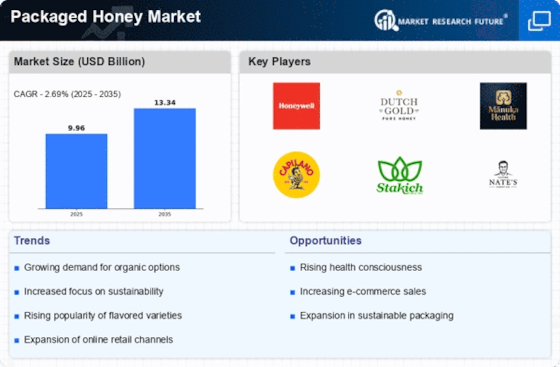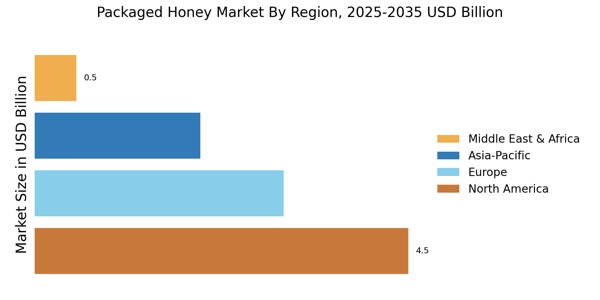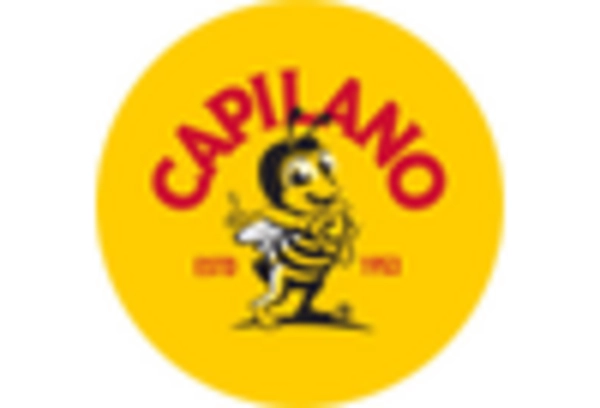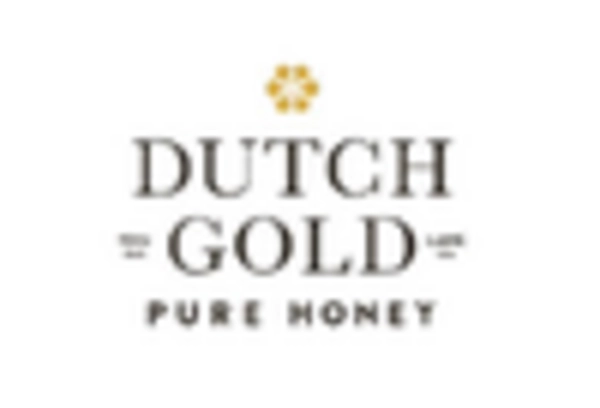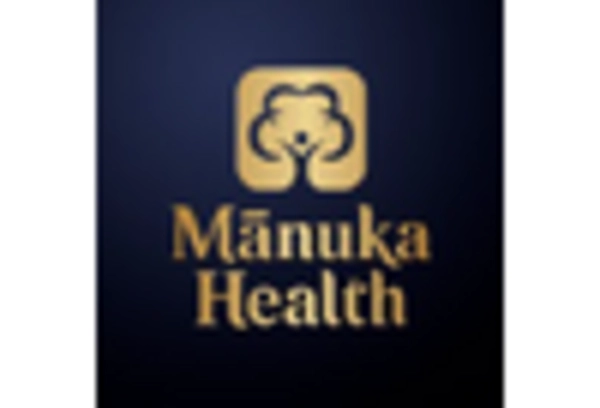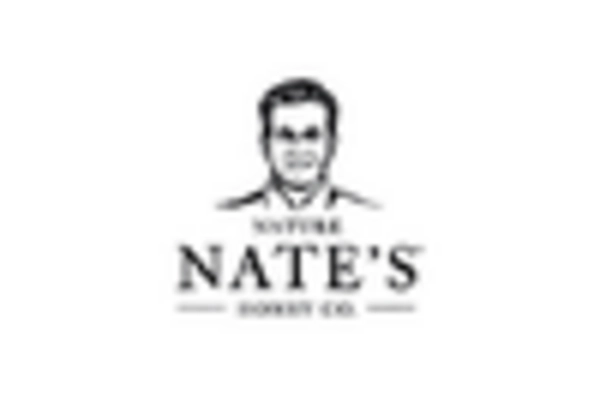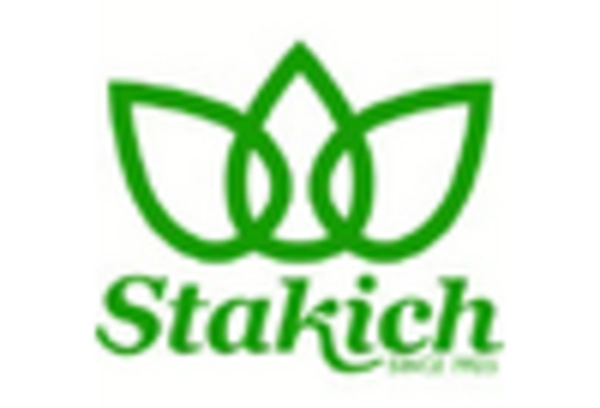Innovations in Packaging
Innovative packaging solutions are transforming the Packaged Honey Market, enhancing product appeal and convenience. The introduction of eco-friendly packaging options aligns with consumer preferences for sustainability, while also improving shelf life and usability. For instance, resealable pouches and single-serve packets cater to on-the-go lifestyles, making honey more accessible to a broader audience. Additionally, advancements in packaging technology, such as vacuum sealing, help preserve the quality and freshness of honey, which is crucial for maintaining consumer trust. As a result, companies that invest in innovative packaging strategies are likely to gain a competitive edge in the Packaged Honey Market, attracting environmentally conscious consumers and those seeking convenience.
Expansion of Distribution Channels
The expansion of distribution channels plays a crucial role in the growth of the Packaged Honey Market. With the rise of e-commerce platforms, honey producers are now able to reach a wider audience than ever before. Online sales of packaged honey have increased significantly, as consumers appreciate the convenience of purchasing products from home. Additionally, traditional retail channels, such as supermarkets and specialty stores, continue to play a vital role in product availability. The combination of online and offline distribution strategies allows brands to maximize their reach and cater to diverse consumer preferences. As a result, the Packaged Honey Market is likely to benefit from enhanced accessibility and visibility, driving overall sales.
Rising Demand for Natural Sweeteners
The increasing consumer preference for natural sweeteners over artificial alternatives is a pivotal driver in the Packaged Honey Market. As health-conscious consumers seek to reduce their sugar intake, honey emerges as a favored option due to its perceived health benefits. According to recent data, the demand for natural sweeteners, including honey, has surged, with the market projected to grow at a compound annual growth rate of approximately 5.5% over the next few years. This trend is further fueled by the growing awareness of the adverse effects of refined sugars, leading to a shift in purchasing behavior. Consequently, the Packaged Honey Market is likely to experience robust growth as consumers increasingly opt for honey as a healthier sweetening alternative.
Growing Popularity of Organic Products
The rising trend towards organic products significantly influences the Packaged Honey Market. Consumers are increasingly inclined to purchase organic honey, driven by concerns over pesticide residues and a desire for cleaner food sources. Market Research Future indicates that organic honey sales have seen a notable increase, with a projected growth rate of around 7% annually. This shift is indicative of a broader movement towards organic and sustainably sourced foods, as consumers become more discerning about their purchases. Consequently, brands that offer certified organic honey are likely to capture a larger share of the Packaged Honey Market, appealing to health-conscious consumers who prioritize quality and sustainability.
Increased Awareness of Health Benefits
The heightened awareness of the health benefits associated with honey consumption is a significant driver in the Packaged Honey Market. Honey is recognized for its antioxidant properties, potential anti-inflammatory effects, and natural energy-boosting capabilities. As consumers become more informed about these benefits, they are more inclined to incorporate honey into their diets. Recent studies suggest that honey can aid in digestion and improve overall wellness, further solidifying its position as a healthful alternative to processed sugars. This growing awareness is likely to propel the demand for packaged honey, as consumers seek products that contribute positively to their health. Consequently, the Packaged Honey Market stands to gain from this trend, as health-oriented consumers increasingly turn to honey as a staple in their diets.


